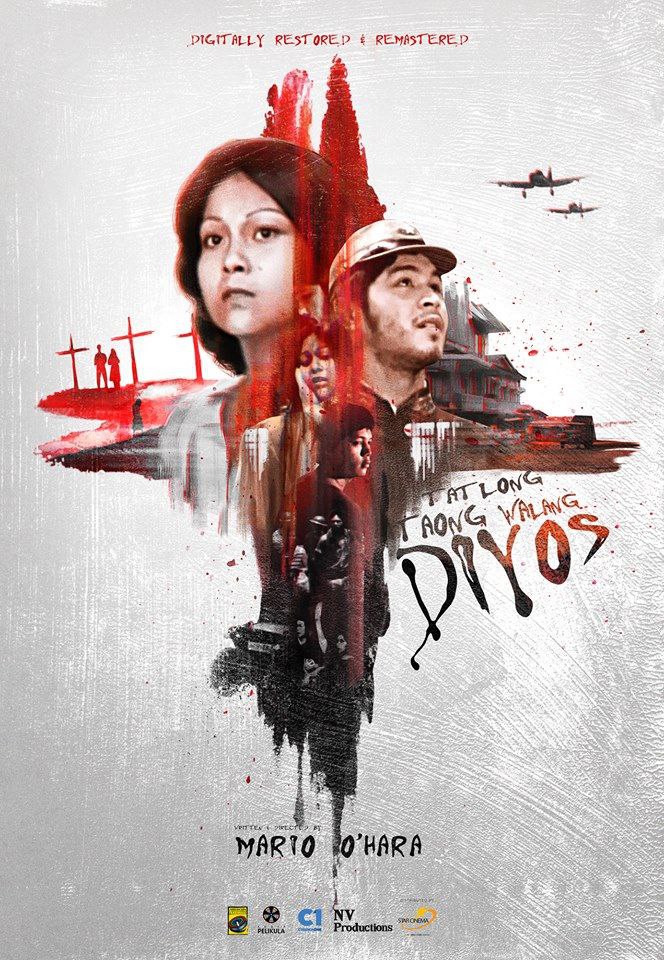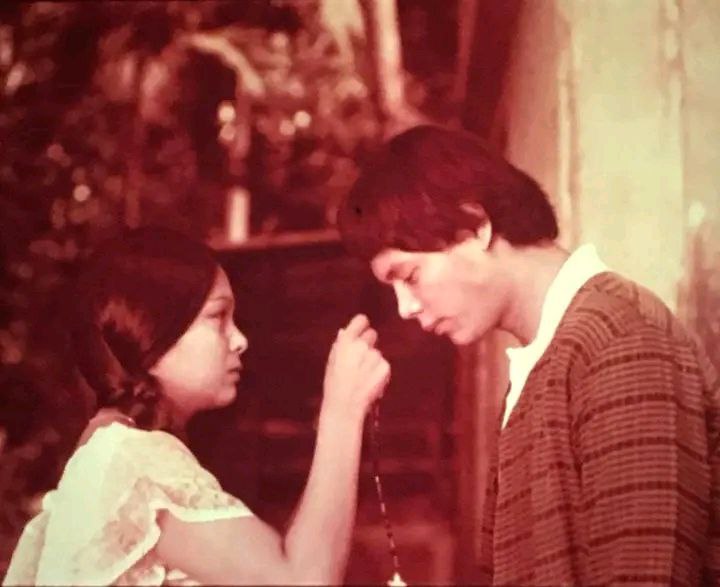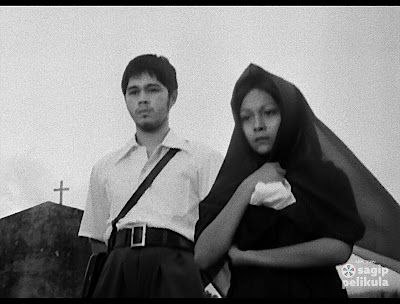Tatlong Taong Walang Diyos: Sacrifice and Redemption in the Shadow of War
Written by: Lovely Sheena Galido
April 24, 2025
Tatlong Taong Walang Diyos (1976) is an unflinching film set in World War II that shows how love and faith can crumble at the peak of the conflict. The film was directed by Mario O'Hara, who tells a story of sacrifice and redemption that occurs during rampant chaos.

Courtesy: IMDb
As in most Filipino stories, the film focuses on Rosario (Nora Aunor), who is a young schoolteacher. Her world is turned upside down when her fiancé, Crispin (Bembol Roco), also a teacher, decides to enlist himself in the guerrilla warfare subversive movement. Rosario, together with her family, struggles and starves in fear due to the Japanese occupation of their town. The central character is Rosario, portrayed by Nora Aunor. She is a young schoolteacher. Her life is upended when her fiancé, Crispin, becomes one of the guerrilla fighters. Many hardships befall Rosario and her family while Crispin is away. They are struggling to survive the war. Then a Japanese-Filipino officer, Masugi, played by Christopher De Leon, comes into their lives. Rosario faces violence at his hands, and that response makes her feel alone and ashamed. She has to make difficult decisions to keep her unborn baby and her family.

Courtesy: ABS-CBN Film Restoration
The most distinguishing aspect of Tatlong Taong Walang Diyos is the unique representation of love, not as just a simple romantic encounter but as a force that transforms, evolves, and endures the pains of suffering and loss. The relationship between Rosario and Masugi goes from gun violence to horrendous suffering to a mild semblance of civility while slowly becoming intricate, testing viewers’ perceptions of forgiveness, love, and human weakness. While the film depicts the brutal realities of war violence, it simultaneously demonstrates the deep compassion and humanity that can arise from tragedy. Sacrifice is one of the focal points in the film. In particular, the film portrays Rosario's struggle to come to terms with Masugi's offer for her family's safety and further illustrates her enduring the judgment and scorn of her neighbors, fighting and betraying herself to attempt to find strength. The film also captures a profound question: can one forgo violence and dangerously palpable hatred? It answers this through the character’s journey and ultimately concludes that whereas Rosario’s journey is wrought with pain, forgiving is the only alternative if one intends to get away, heal, and move on.

Courtesy: BusinessWorld
More than a historical drama, Tatlong Taong Walang Diyos is a contemplation of the spirit’s ability to endure, love, and forgive when faith is lost. It encourages viewers to ponder over the complex emotions that war commands from everyday people and the sacrifices endured in the name of survival. Ultimately the film conveys a painful, commanding message: that even in the most dire of circumstances, there remains hope.
References:
Vera, N. (2018, December 13) Three Years Without God (Tatlong Taong Walang Diyos, Mario O'Hara)
https://criticafterdark.blogspot.com/2018/12/three-years-without-god-tatlong-taong.html?m=1
